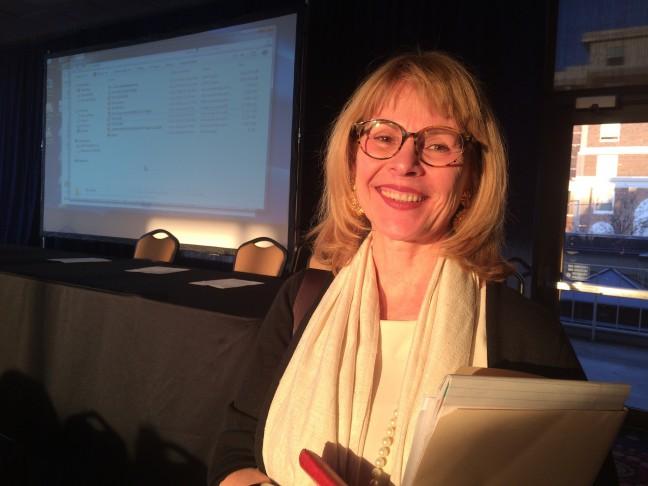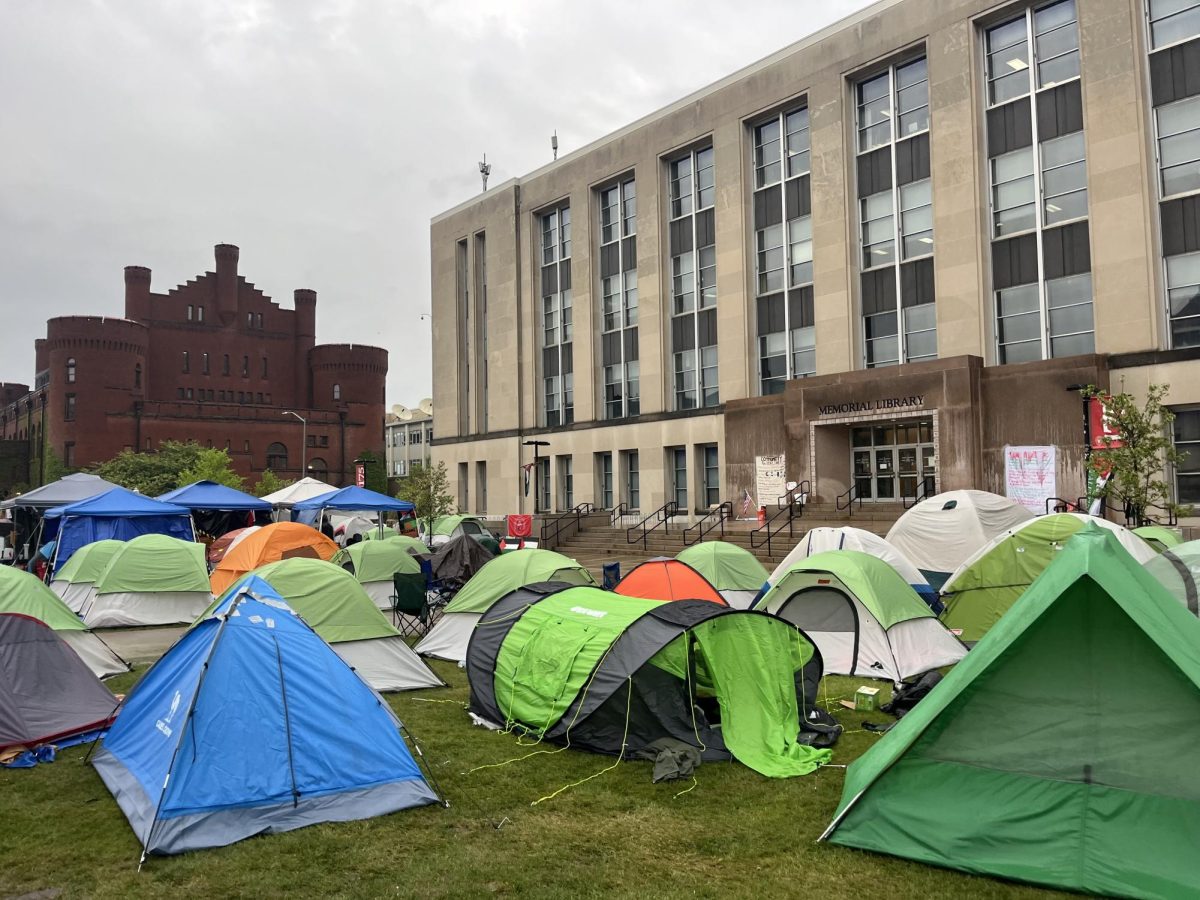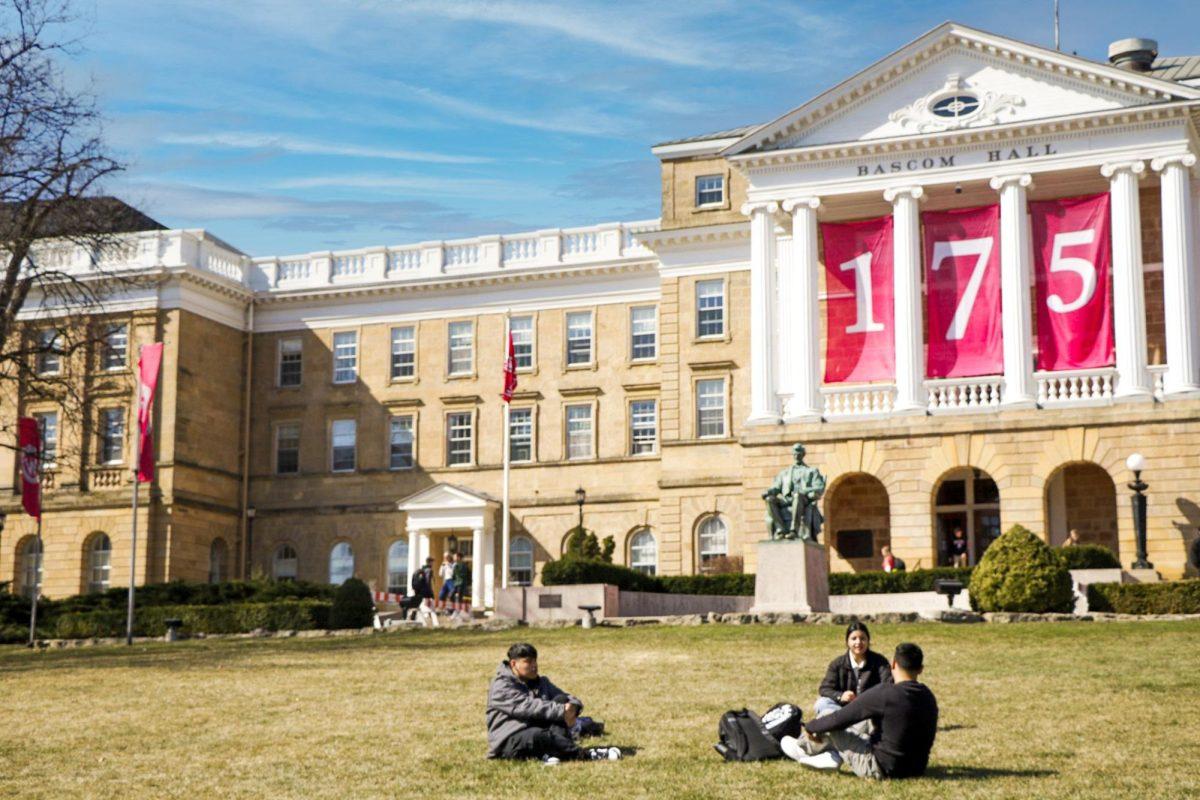To kick off the first annual 2016 4W Summit on Women, Gender and Well-being, two University of Wisconsin alumni discussed how everyday people can change the way human trafficking is viewed.
Michele Clark, ArtWorks for Freedom executive director, and Peter Greenberg, CBS travel journalist, gave a joint speech titled “Human Trafficking: What’s the Real Story?” at the Pyle Center Thursday.
Both speakers focused on how to use media to spread the right message and raise public awareness on the harm of human trafficking. The main force to eliminate this inhumane practice, Clark said, is not on legislators or people in power, but rather the grassroots movements that start with everyday citizens who are informed and empowered by media.
“When it comes to bringing about social change, the push actually come from us,” Clark said. “[Media] enables the public — the you, the me, the us of the world to step in and speak up.”
The push to stop human trafficking is a complicated, large-scale and intercontinental process, Clark said, that goes far beyond solving a single crime. The goal, he said, is to fundamentally revolutionize the way people look at the world and help them realize the seriousness of human trafficking.
As the leader of ArtWorks for Freedom, an organization dedicated to exposing modern slavery and human trafficking through the form of art, Clark talked about the importance of sending right messages through media such as movies, art, books and advertisements.
Some common misconceptions about human trafficking will make people believe in lies and skew the process of citizen activism and decision-making, Clark said. For example, while many consider sex trafficking the only way of modern slavery, half of the victims are still trafficked for labor. The display in front of the Chazen Museum by ArtWorks for Freedom aims to challenge those misconceptions and give people a fresh perspective at the issue.
“It’s a new way of seeing, a new way of looking at stories in a way that doesn’t re-victimize the victim, that honor the dignity of survivors, that tell the real story,” Clark said.
Greenberg, an investigative journalist who has been using his reporting to expose the human trafficking industry in Thailand for years, seconded Clark’s argument that stopping human trafficking is not about changing laws, but about changing culture.
Greenberg stressed the necessity of public education, especially the education of people who work in travel-related fields, such as airlines and hotels.
The hotel business is especially affected by human trafficking, Greenberg said. From the supply chain industry to customer service, these are only some of the facets potentially filled with aspects of human trafficking, he added.
Greenberg told the audience to ask hotel staff simple questions like where they got their water supply or their lettuce, and if they cannot give a direct answer, travelers should leave the hotel.
In fact, when the organization Ending Child Prostitution and Trafficking created a code of conduct for hotels — limiting their relationship with businesses involved with human trafficking — only four hotels chains, including Carlson Hotel Group, signed it, Greenberg said. He said that shows the irresponsibility of hotel industries and the importance of citizens to take action and make changes happen.
“As more and more of you do that, it would be economically viable for the hotels,” Greenberg said. “Whether they sign the code or not, they will not have a choice but to readdress their purchasing, readdress their entire philosophy.”


















